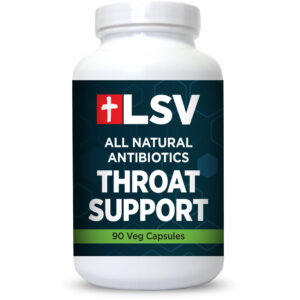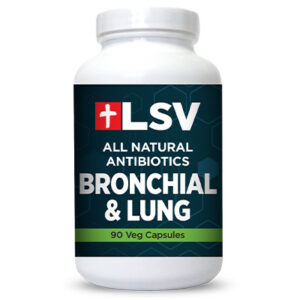Our Company
LSV
SINCE 1992
Founded in 1992, in Winter Park, Florida – LSV Vitamins has been the leader in All Natural Antibiotic supplement sales for over 30 years in the United States.

Echinacea: Inflammation and Immune Support Power
Echinacea, a flowering plant with a long history of use in traditional medicine, has captured the interest of modern science. While its effectiveness against the common cold remains debated, research is exploring its potential role in inflammation. While not a magic bullet, echinacea offers a glimpse into natural approaches to managing inflammation alongside conventional therapies.
A Complex Plant with Diverse Compounds
Echinacea encompasses various species, but Echinacea purpurea is the most commonly studied. This vibrant flower boasts a complex profile of compounds, including caffeic acid derivatives, cichoric acid, and alkylamides [1]. These compounds are believed to contribute to echinacea’s potential health benefits.
Inflammation and the Immune System Connection
Inflammation is a natural response to injury or infection. However, chronic inflammation can contribute to various health problems. Echinacea’s potential anti-inflammatory effects may be linked to its influence on the immune system [2]. Studies suggest echinacea may modulate the activity of immune cells involved in the inflammatory response [3].
Early Signs of Promise, But More Research Needed
While research on echinacea’s anti-inflammatory properties is ongoing, the results so far are mixed:
Important Considerations and the Need for More Research
While the initial research on echinacea and inflammation is intriguing, there are important factors to consider:
Echinacea: A Supportive Herb, Not a Replacement
Based on current research, echinacea shows some promise as a natural approach to inflammation, but it should not be seen as a replacement for medication prescribed by a doctor.
Exploring Echinacea Responsibly
If you’re considering using echinacea for inflammation, consulting your doctor is essential. They can assess your individual needs and advise you on whether echinacea is a suitable option and recommend appropriate dosages. Echinacea comes in various forms, so discussing the best option for you is crucial.
The Future of Echinacea in Inflammation Management
As research on echinacea progresses, we may gain a deeper understanding of its potential role in managing inflammation. Future studies may shed light on optimal dosages, specific applications for different inflammatory conditions, and the exact mechanisms by which echinacea influences the immune system and inflammation.
Echinacea is one of the 14 ingredients in all of our All Natural Antibiotic line: See Below:
LS Vitamins – Since 1992
See All of our effective All Natural Products Here
All Natural Antibiotics Cold & Flu
All Natural Antibiotics Sinus Support
All Natural Antibiotics Teen Support
All Natural Antibiotics Tooth & Gum
All Natural Antibiotics Bronchial & Lung Support
All Natural Antibiotics Throat Support
For Over 30 Years, we have 3rd Party Tested each and every nutrient that go into all of our products: Purity & Effectiveness is how are product continually works for Tens of Thousands of our Customers.
By no means are we at LSV Vitamins saying do not take what your doctor prescribes, we are just saying that we have an alternative for those who cannot take Antibiotics, afraid one of the many side effects, or simply want to try an all-natural alternative. We have a large number of people (over 100,000) who take and have taken this at the first sign of a problem, and it works well. As always, consult your doctor.
*Disclaimer: None of the above statements have been evaluated by the FDA. These products are not intended to diagnose, treat, cure or prevent any disease. As always, consult your physician before taking any supplements. LSV. Individual results may vary.
Studies Referenced:
 Throat Support - Natures Antibiotics
Throat Support - Natures Antibiotics
 Bronchial & Lung Support - Natures Antibiotics
Bronchial & Lung Support - Natures Antibiotics
LSV
SINCE 1992
Founded in 1992, in Winter Park, Florida – LSV Vitamins has been the leader in All Natural Antibiotic supplement sales for over 30 years in the United States.